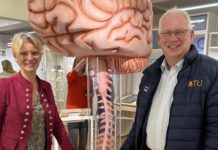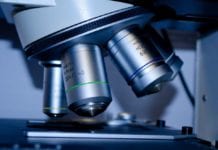A study of fruit fly genetics at NUI Galway could have potential implications for treating human infertility down the line following new discoveries about stem cells in the ovary.
The study, which found that removing a certain protein from stem cells in the ovary resulted in an interruption of the production of eggs.
This discovery could have potential implications human health in the future, the research study said, as the same genes responsible for these proteins also exist in humans.
Restoring the broken gene in stem cells could potentially improve stem cells function, and help treat infertility.
The Centre for Chromosome Biology at NUIG have been studying how stem cell divisions are regulated in the body, which is of great relevance to fertility, ageing, cancer and regenerative medicine.
They have been using fruit flies for this research as 60 percent of their genes also exist in humans, and they have stem cells with similar functions to our our own.
Dr Elaine Dunleavy, lead author of the study, said “Our work in fruit flies allows us to manipulate genes to understand their function in stem cells in the ovary that would not be possible to carry out in humans.
She added that “Through this approach we hope to uncover genes that might be important for human fertility.”











